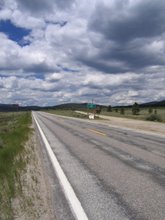I love this passage from the prophet Isaiah—it appears in so many ways during advent. I picked an older translation just because there’s so much beauty in the poetry, so many other references to it. There’s the hymn “Comfort, comfort, o my people, speak of peace thus says our God.” And it’s scattered throughout Handel’s Messiah “….and all flesh shall see it together….”
It’s also theologically important- both as it was originally written, but also as a piece of text that the early church turned to to try to make sense of who Jesus was.
This passage was first written by someone in the school of Isaiah the prophet to speak Hope to the people of Israel who were in exile. Not quite in captivity, they were in “Babylon” not their homeland, living as somewhat subject people in a foreign land. And so, to these people, Isaiah is preaching Comfort: that the time of warfare, of exile is over.
Think back to the passage: The syntax is a little strange, but God is speaking here to what would be angels, heavenly beings, and commanding them to bring comfort to the people in captivity. And then the prophet hears this, hears a voice—“Prepare ye the way of the Lord—make a highway in the desert. We’re going to flatten the mountains, fill in the valleys” Why? So Israel can return home from exile--- this road is the road of return.
But all is not well; there is paradox: the prophet hears the voice, but asks “what should I cry?” All flesh is grass—we are transient, what hope is there? It’s a very existential question. The theologian Paul Tillich says that this passage is filled with rising and falling waves of darkness and light. Sure the Lord is great—but what does that mean, since we are so small? Against this transience, against humans withering like grass, stands God who is going to act in history and protect his people, like [in that ancient metaphor], a shepherd. The exile, the uprootedness, the separation from home,from God—this is ending.
But fast forward hundreds of years, and it doesn’t end. We have the book of Job—there’s suffering it says, and why doesn’t God act? Who knows… but we can’t count on God to bring us peace just because we’re good. There was the return from Babylon to Jerusalem, but the warfare is not over. A now, at the time of Jesus, Israel stands occupied, oppressed? by the Roman empire.
This section from Isaiah is kind of “ported over”, creatively re-interpreted to describe Jesus. The church sees John the Baptizer as saying “Prepare ye the way of the Lord”. And then in Jesus, the church sees that God has come; a kind of exile has ended. The end of this exile does not come in the form of a return to Jerusalem down a physical road, but in following “The Way”, as Christianity was originally called, The Way of Jesus. And so this reconciles how God can be good and strong and loving, and how yet the people of God could suffer so—the deliverance that God has promised comes in an entirely different form than expected.
What does that mean for us? We shouldn’t expect to find comfort and peace in this world—not peace “as the world gives”, not peace in the sense that there will be no warfare, no unemployment. (Though we shouldn’t for a moment give up working for that peace). Rather, the peace we can expect to find, the peace that God promises us—and it is a promise. It is a peace that comes from God amidst our suffering, available to all seekers, regardless of the chaos that still surrounds us.
Amen.
